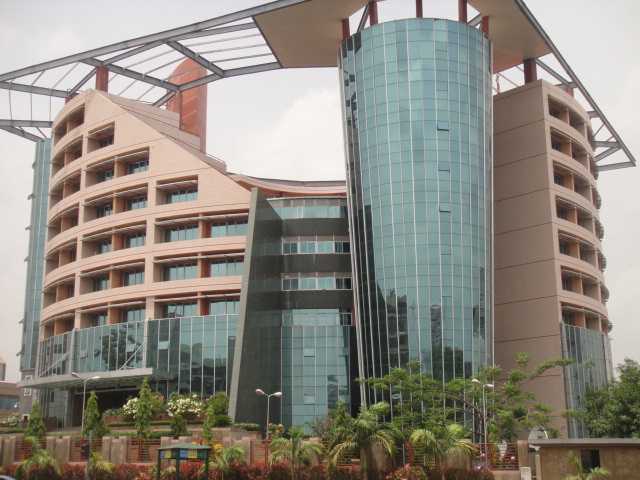The Nigerian Communications Commission (NCC) on Friday said over 300 institutions of higher learning in Nigeria have benefitted from its Advanced Digital Awareness Programme for Tertiary Institutions (ADAPTI).
The Executive Vice Chairman of NCC, Prof. Umar Danbatta, said in a statement in Lagos that ADAPTI was one of the central capacity building programmes of the commission.
Danbatta said that ADAPTI was conceptualised to bridge the digital gaps that existed in academia.
He said that NCC had provided computers and other Information and Communication Technology (ICT) equipment to lecturers, administrative staff and students for the requisite ICT skills essential for the 21st Century.
According to him, NCC provides tools that will enable familiarity and confidence in the utilisation of ICT in teaching, research and learning.
Danbatta said that deployment of ICT infrastructure in the precinct of the Nigerian tertiary institutions nudged the establishment of the Nigerian Research and Education Networks (NgREN).
”The overarching advantages in deploying ICT in education include the fact that through ICT, images can easily be used in teaching and improving the retentive memory of students.
”Teachers can easily explain complex instructions and ensure students’ comprehension; and teachers are able to create interactive classes and make the lessons more enjoyable, which can improve students’ attendance and concentration,” he said.
Danbatta said that the regulatory body had inaugurated several intervention initiatives, programmes and projects in the education sector in Nigeria.
” NCC provides broadband infrastructure and facilities to the universities and other institutions of learning in Nigeria; and access programmes.
”These include 12 ICT/CBT centres that are ongoing under the Stakeholders Initiated Project (SIP); as well as additional four skills acquisition centres, which are also scheduled for completion soon.
”There is also the Tertiary Institution Knowledge Centres (TIKC), an initiative of the Universal Service Provision Fund (USPF), a Department in NCC.
”The TIKCs are designed to promote the use of ICT tools in teaching and learning at tertiary institutions and their neighbouring communities,” he said.
According to him, there are the Digital Bridge Institute (DBI) Learning Centres, established with training facilities and equipped with modern ICT infrastructure for training engineers, ICT professionals, policy makers, and regulators in the relevant and related sectors of the economy.
He said that currently, there were five DBI learning centres across the country – Yola, Enugu, Asaba, Lagos (Oshodi) and Kano.
”There are also Information Resource Centres (IRC), another USPF intervention project to create ICT-driven knowledge management (digital libraries) within the existing public libraries, to enable e-libraries effective resource sharing and access to e-content.
”Beneficiary libraries are provided with desktop computers, server systems, UPS, printers, computer furniture, air conditioners, library software, scanner, 60 KVA generator and VSAT equipment with bandwidth.
”More than 30 state libraries and 26 tertiary institutions across the geo-political zones of the country have benefited,” he said.
The EVC said that another noble initiative was the University Inter-Campus Connectivity (UnICC).
He said that the UnICC was a support project to the National Universities Commission’s NgREN project, with primary purpose of delivering broadband infrastructure and access to facilitate research and learning using Optic Fibre Cable (OFC).
According to him, a total of 381.7 km OFC has been deployed in 15 universities linking them with their medical colleges.
He said that at the moment, deployment of OFC was ongoing in another nine universities.
”There is also the UnICC Electronics Project which involves interconnecting end-user Electronics within the University Campus. Currently, provision of connectivity is ongoing in five universities across the country.
”The commission has provided data sharing platforms for learning and health system in Nigerian universities and Teaching Hospitals, as well as training facilities with modern ICT infrastructure to promote learning and teaching in our institutions.
”These include: Data Sharing, e-learning Platforms and ICT Infrastructure to selected universities across the country.
They are: University of Nigeria Nsukka (UNN), Federal University of Technology Akure (FUTA), Ahmadu Bello University (ABU), Bayero University Kano (BUK), Nigerian Defence Academy (NDA), Federal University of Technology Akure (FUA) and Federal University of Technology Yola (FUTY).
”In addition, the Data Sharing, e-Health Platforms and ICT Infrastructure have also been deployed to the University of Nigeria Teaching Hospital (UNTH) and Obafemi Awolowo University Teaching Hospital (OAUTH).
”Others are Bayero University Kano Teaching Hospital (BUKTH), Benue State University Teaching Hospital (BSUTH) and Usman Dan-Fodio University Teaching Hospital (UDUTH),” Danbatta said. (NAN)
FON/GOK

